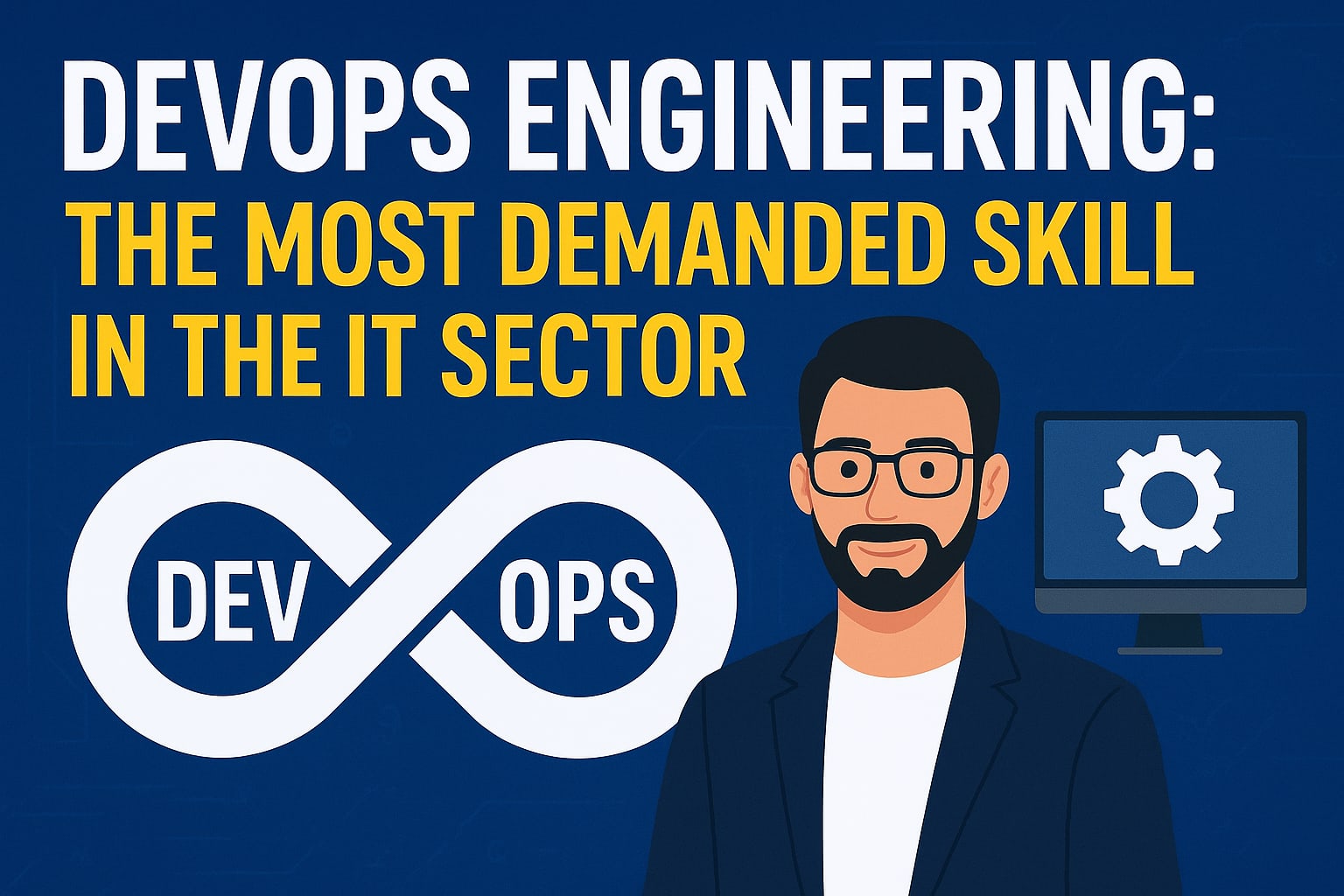
DevOps Engineering: The Most Demanded Skill in the IT Sector
In today's rapidly evolving digital landscape, one profession has emerged as a crucial pillar in the success of modern software development and operations: DevOps Engineering. As organizations race to deliver high-quality software at a faster pace, the demand for DevOps engineers has skyrocketed. What makes DevOps so sought after in the IT industry isn't just the speed and agility it brings to software lifecycles, but also the unique complexity of the role — a complexity that heavily relies on human expertise rather than automation or AI.
What is DevOps?
DevOps is a blend of Development and Operations — a cultural and technical movement aimed at unifying software development (Dev) and IT operations (Ops). The goal is to shorten the development lifecycle, increase deployment frequency, and ensure high software quality through continuous integration, continuous delivery (CI/CD), infrastructure as code (IaC), monitoring, and collaboration.
DevOps isn’t just a set of tools or practices — it’s a mindset that encourages cross-functional collaboration, problem-solving, and continuous improvement. It breaks down the silos that have traditionally existed between developers and system administrators.
Why DevOps Engineering is in High Demand
Critical to Digital Transformation
Every business today is becoming a tech-driven business. Whether it's a bank launching a mobile app or a retailer running an e-commerce platform, the ability to deliver software quickly and reliably is mission-critical. DevOps engineers are at the core of enabling this transformation.
Complex Toolchains and Workflows
A typical DevOps workflow integrates a wide range of tools — Docker, Kubernetes, Jenkins, Ansible, Terraform, Prometheus, and more. Managing these tools, configuring pipelines, automating deployments, and ensuring security requires deep technical knowledge and the ability to architect complex systems — a task far from simple automation.
Dependence on Human Decision-Making
While AI is transforming many areas of IT, DevOps engineering continues to rely heavily on human intelligence for decision-making. Choosing the right deployment strategy, diagnosing system failures, optimizing resource usage, and enforcing security policies require contextual understanding that machines currently cannot replicate fully.
Security and Reliability Focus
In DevOps, security and reliability are not afterthoughts — they are built into the system from the ground up (DevSecOps). This requires engineers to have a deep understanding of compliance, threat modeling, and secure coding practices.
Adaptability and Continuous Learning
DevOps engineers must constantly keep up with evolving technologies and practices. Cloud platforms like AWS, Azure, and GCP regularly introduce new features, and staying updated is essential. This level of adaptability is a human skill that remains unmatched by AI.
AI Can Support, Not Replace DevOps
There are AI-based tools that assist in anomaly detection, predictive scaling, log analysis, and incident management. However, these are support mechanisms — not replacements. The strategic thinking, creativity, and troubleshooting involved in DevOps still require human insight.
Moreover, DevOps is inherently team-oriented. It involves communication, empathy, and coordination across departments. These interpersonal and soft skills are a core reason why human engineers remain irreplaceable in this domain.
The Future of DevOps Engineering
As more companies shift to microservices, containerization, and multi-cloud environments, the complexity of managing these systems will only grow. DevOps engineers will continue to play a pivotal role, and their responsibilities will evolve into more strategic positions involving platform engineering, site reliability engineering (SRE), and FinOps.
Organizations that invest in skilled DevOps professionals will be better equipped to innovate, scale, and compete in a digital-first world.

